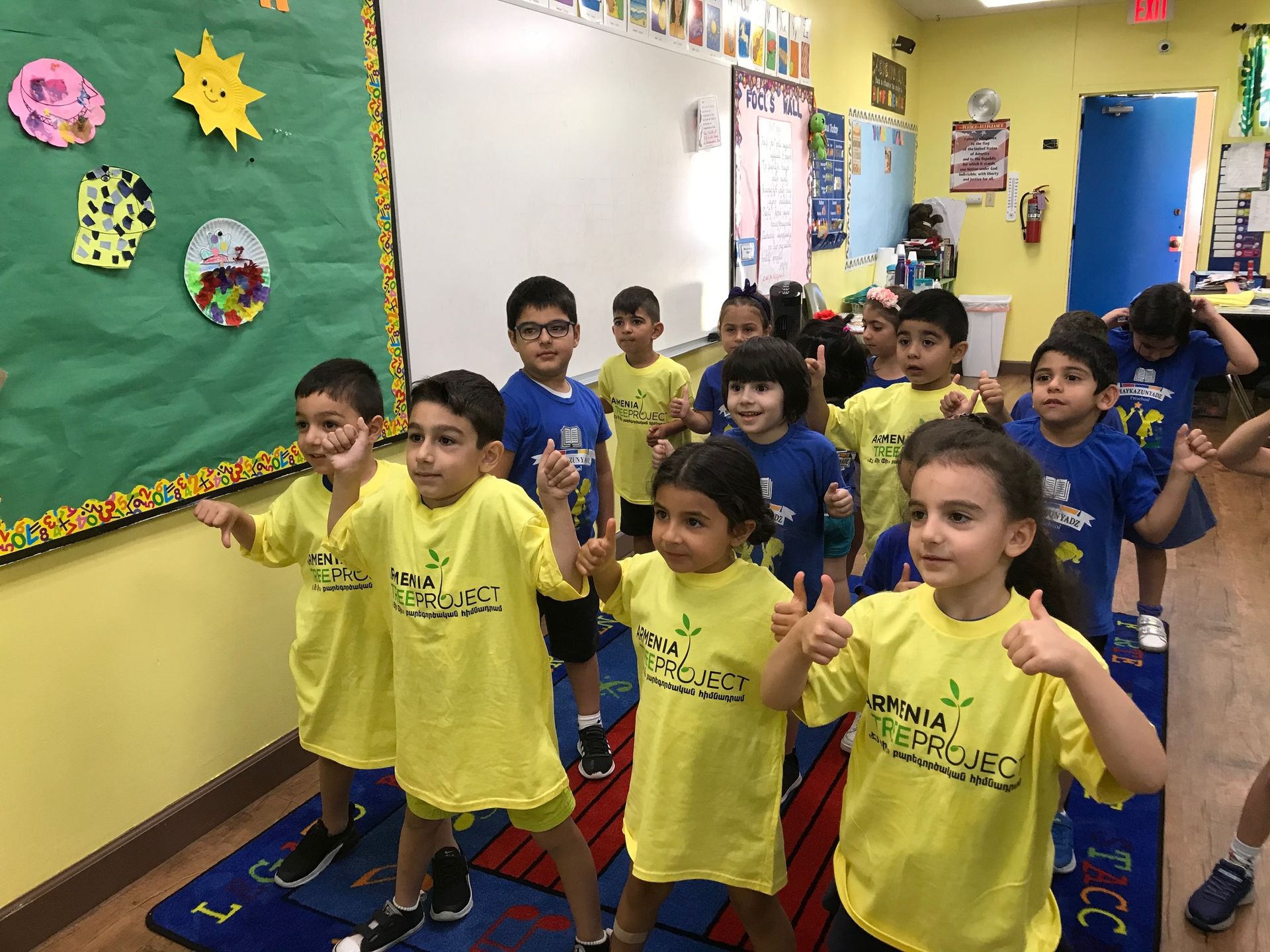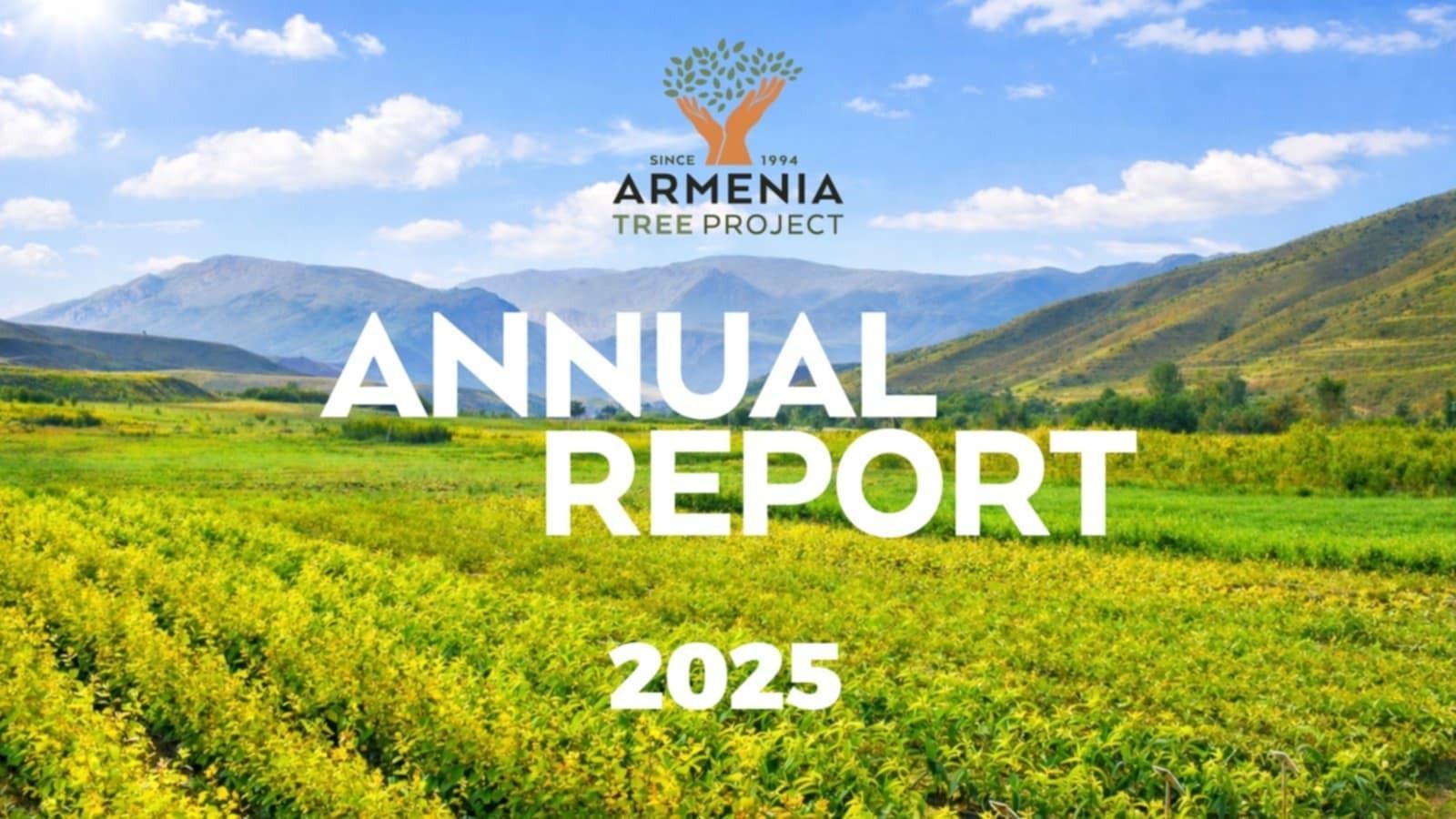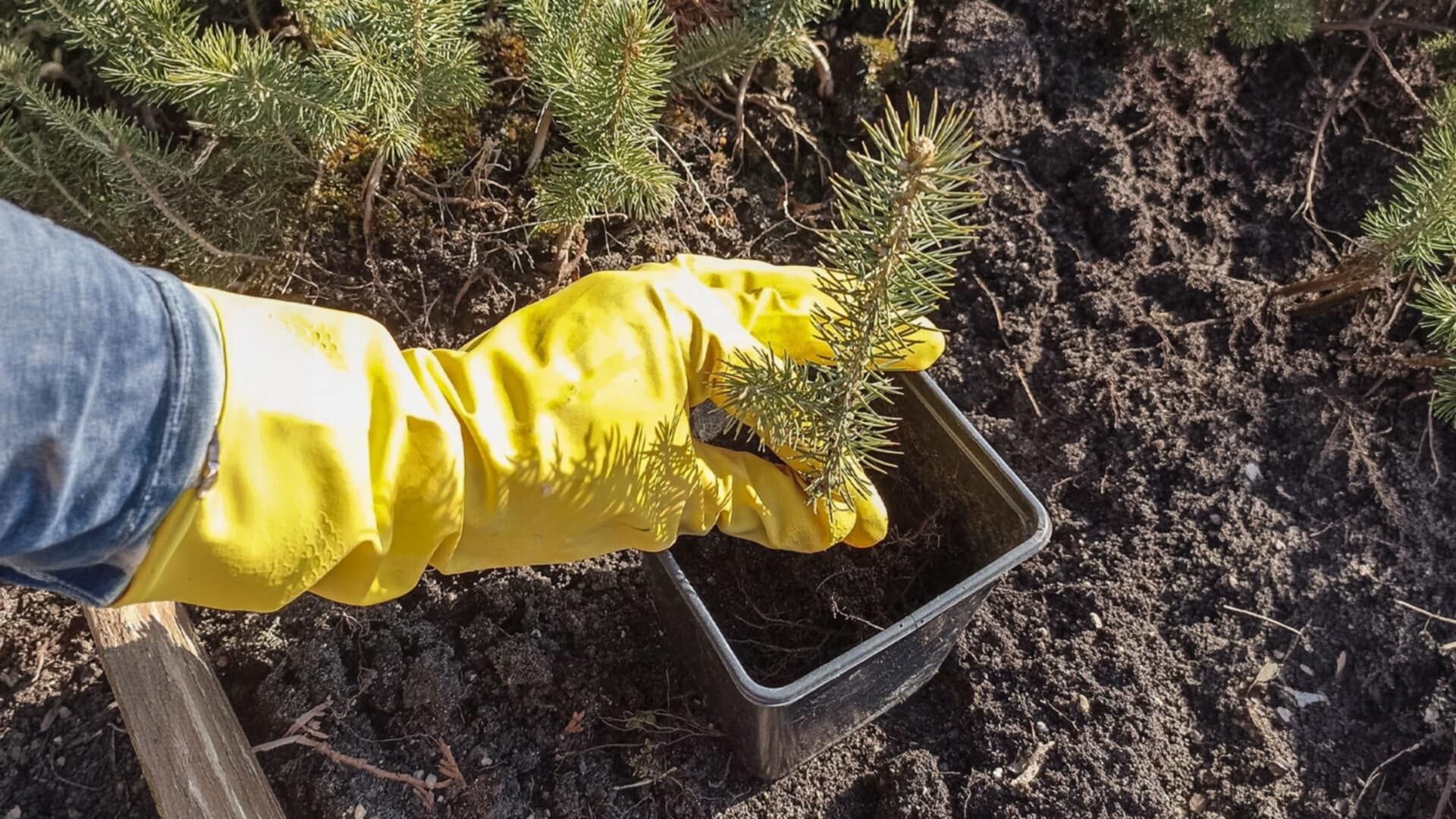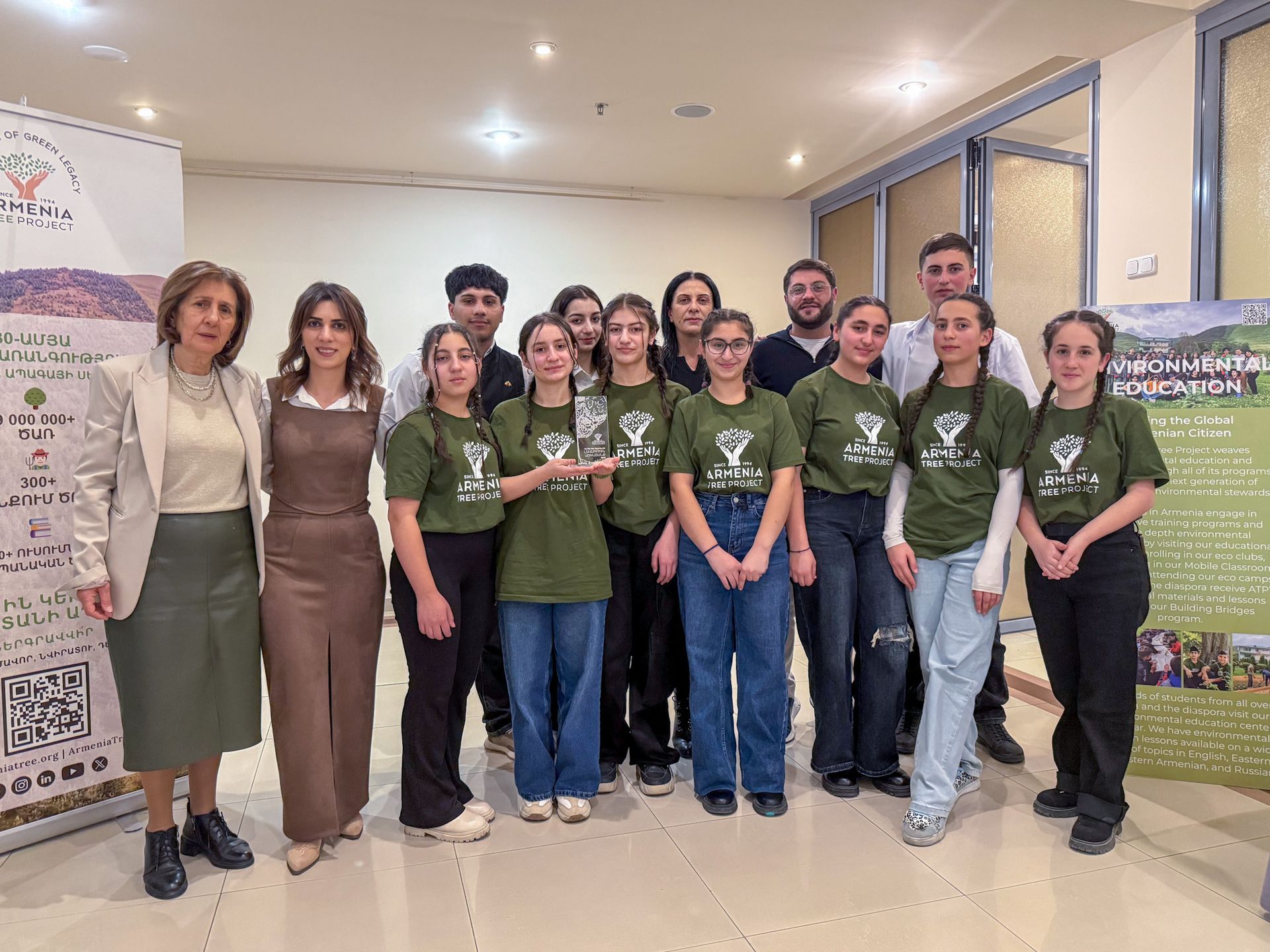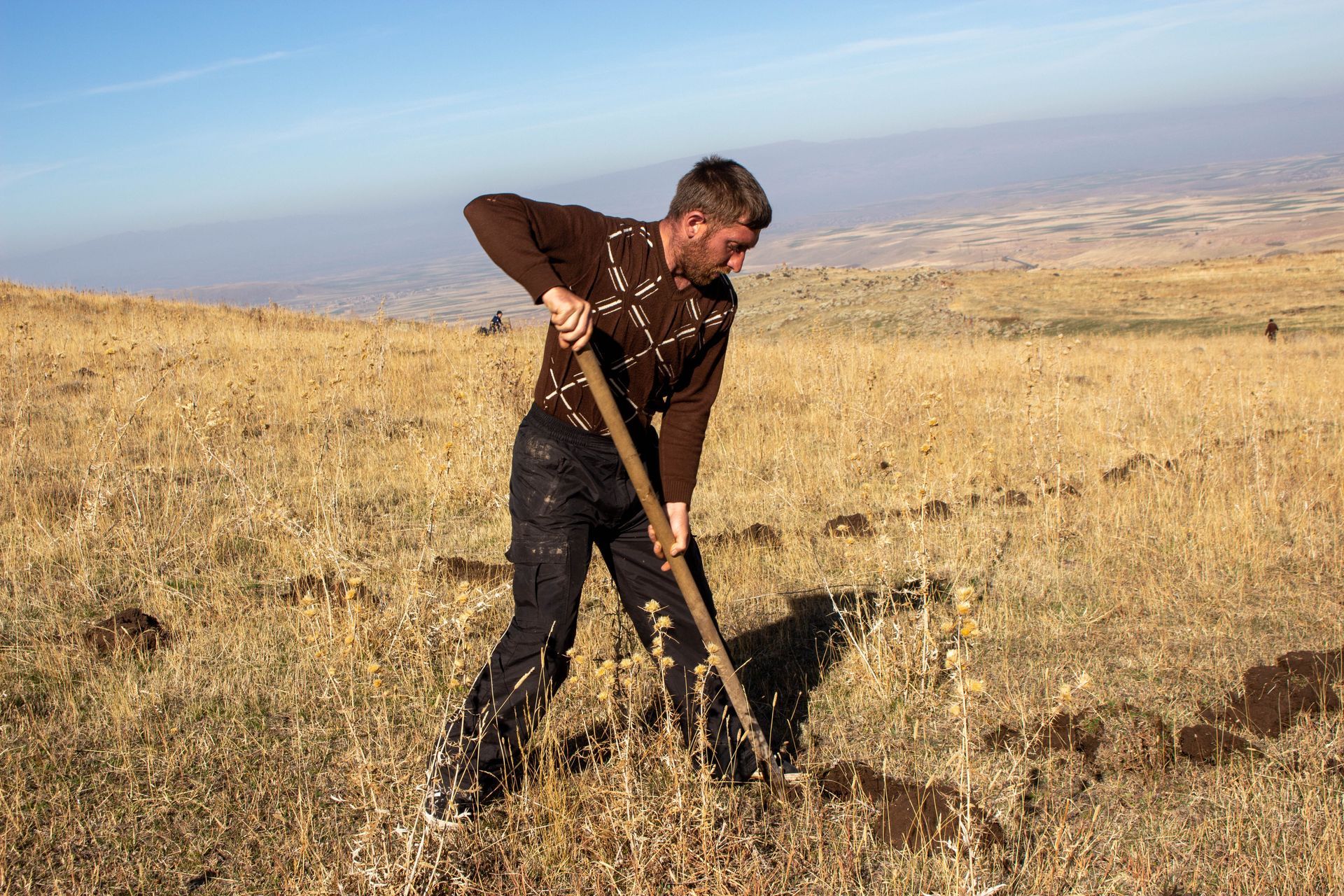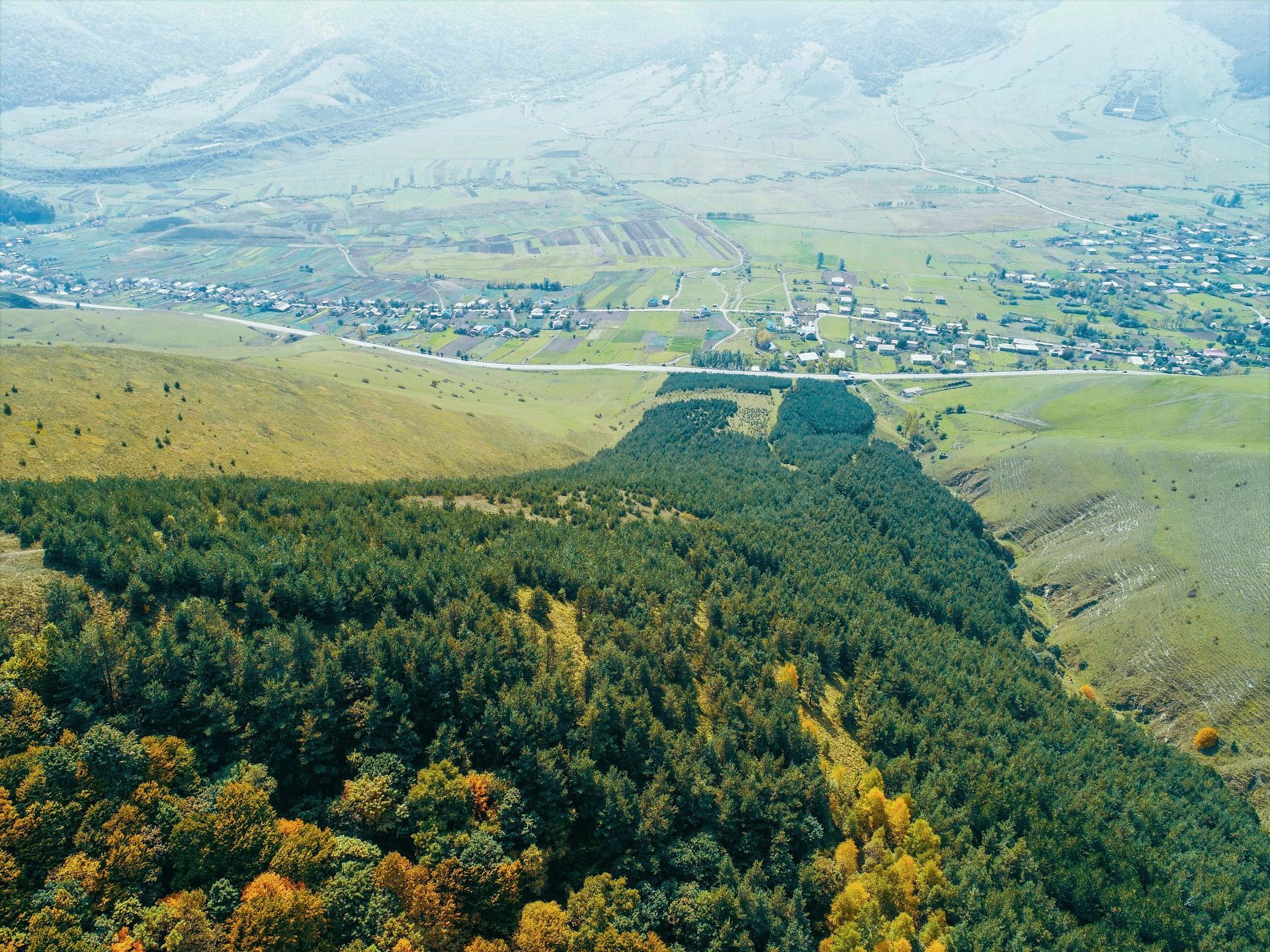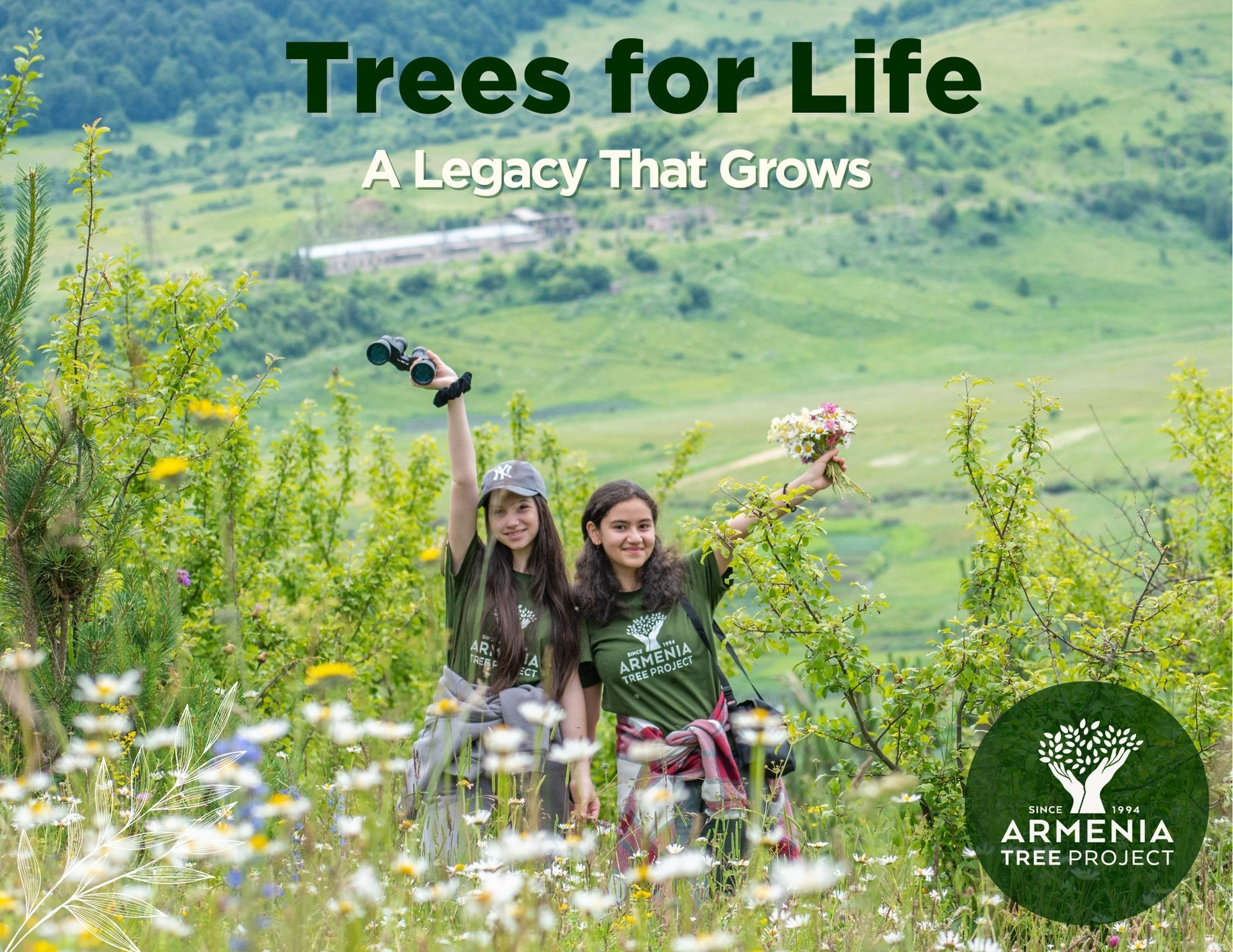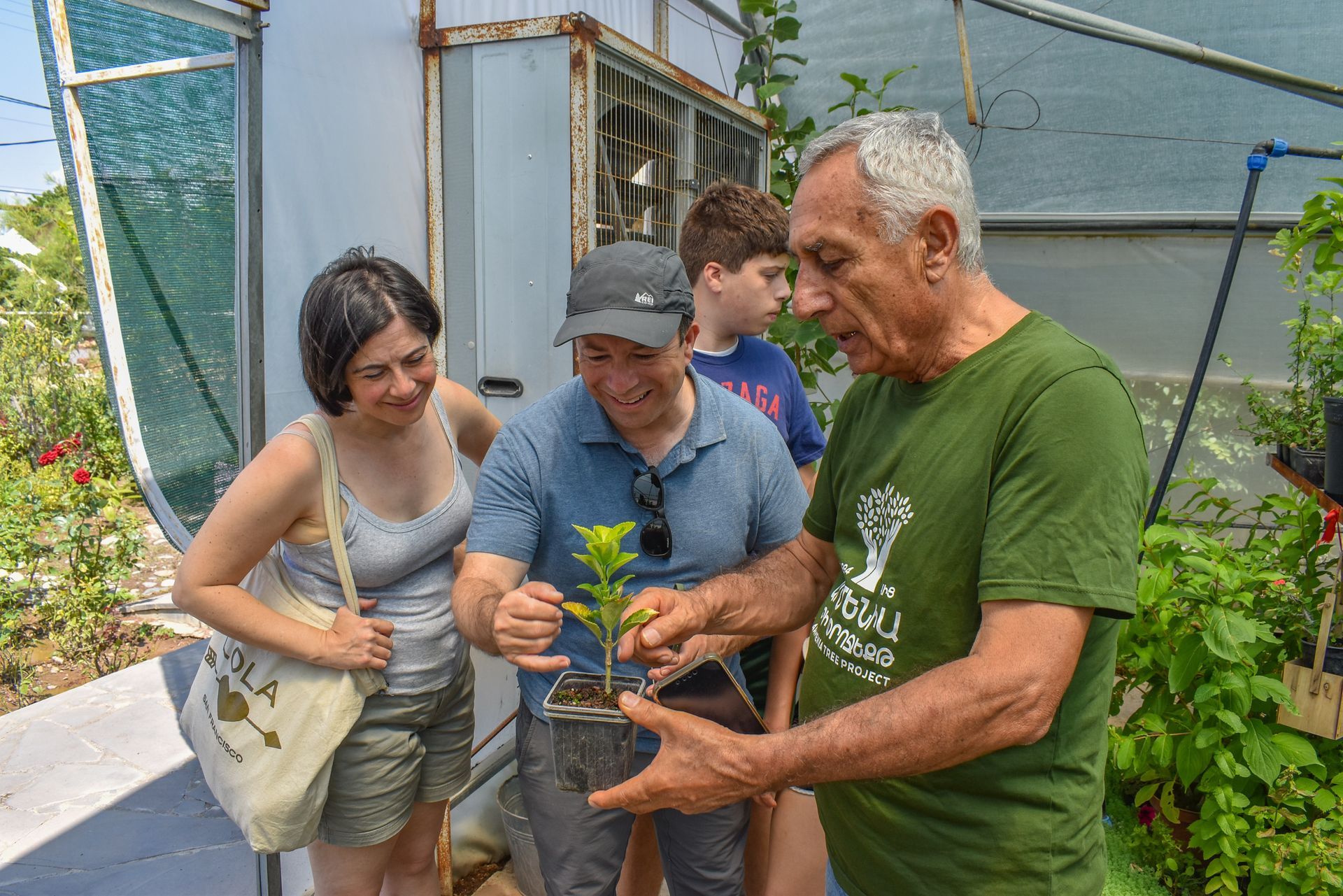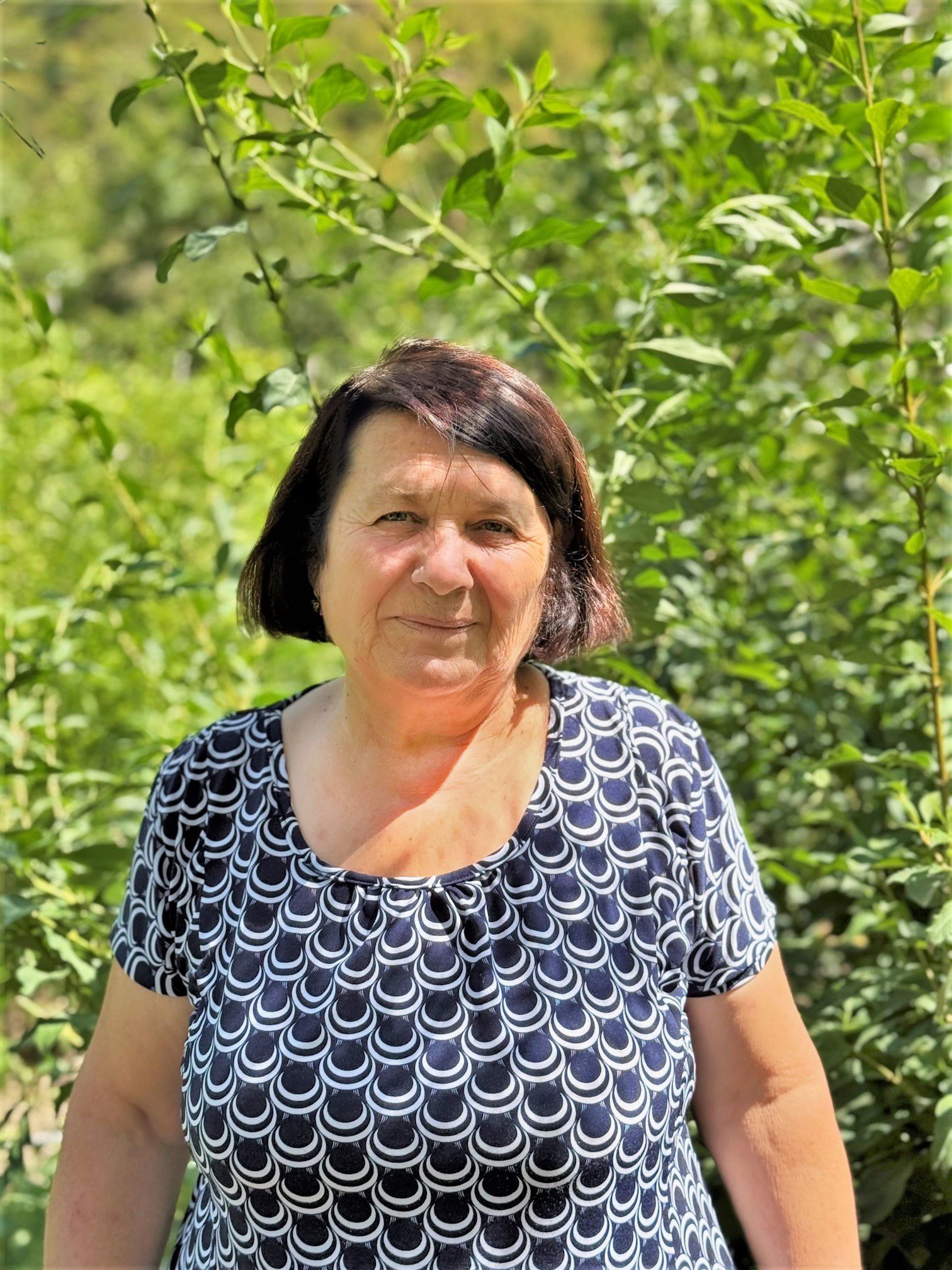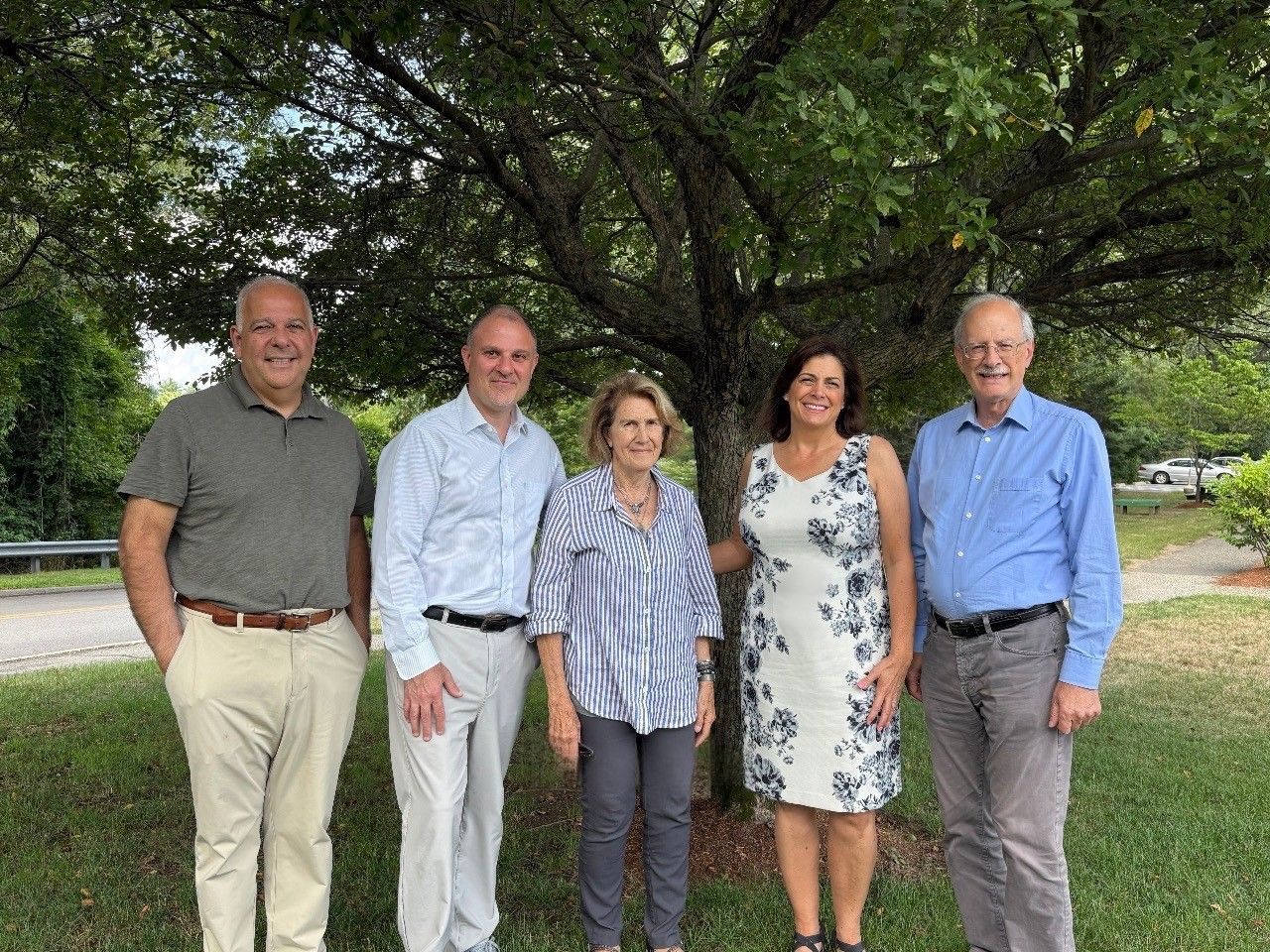From loss to creation: displaced Artsakh men mold a new life through clay making
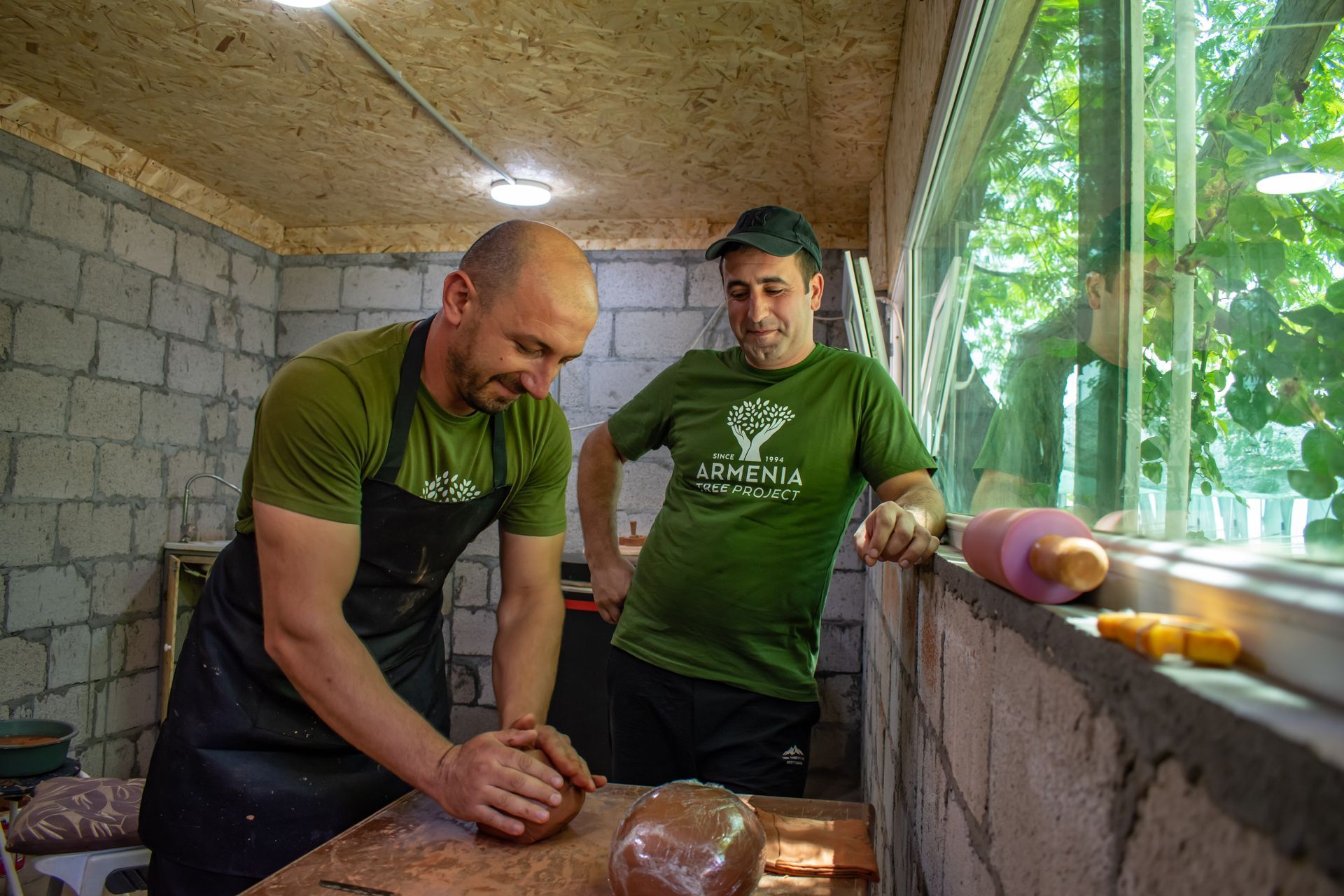
From loss to creation: displaced Artsakh men mold a new life through clay making
Since the unjust displacement of ethnic Armenians from Baku in the 1990s, Armenia Tree Project (ATP) has been dedicated to supporting families and individuals in relocating and building a stable income. ATP’s nursery in Karin village has long served as a place of refuge for displaced families by providing them with meaningful and sustainable work following their resettling from Baku in the early 90s.
Two displaced men in specific have had a unique experience through their work with ATP. As seasonal workers at Karin Nursery in Aragatsotn Province, ATP aimed to provide them with another employment option to keep them on board year round. An idea sprouted to transform an old shed at the nursery into a working studio to serve as a small ceramics workshop on site. Not only was this initiative a way to create more eco-friendly, sustainable clay planters as alternatives to plastic, yet it also offered a space for rebuilding purpose through craft, steady employment, and a place to start again.
With support from US-based ATP donor Karen Jehanian, who sponsored their training and helped launch the project the two men, Tigran and Narek, received two months of training from a local master potter in Aragatsotn (a region with a deep-rooted clay-working tradition). Since acquiring a kiln and turning wheel in February 2025, they have already produced over 200 ceramic pieces, many available in ATP’s Plant Shop and Karin Nursery.
About the creatives: Tigran & Narek
Tigran grew up in Shushi with his mother and two sisters after losing his father in the First Artsakh War. For much of his life, he served in the military until his displacement in 2023.
He has always had a creative side, having studied for five years at Shushi’s Arsen Khachatryan Art School and later earning a degree in history from Grigor Narekatsi University.
Yet once Shushi fell in 2020, his family moved to Stepanakert, and subsequently during the 2023 exodus, had to flee to Armenia where they were housed in Karin village.
Currently, Tigran lives in Karin with his wife, two daughters, and his mother. He is employed at ATP’s ceramics workshop, where reconnecting with clay has offered him both a creative outlet and some sense of stability.
“We’re at a very difficult stage right now, because the government aid has been cut off, Artsakhtsis are facing more problems, especially financially,” Tigran expressed. “Since the very beginning when we first moved, ATP has been vital for us, providing work, salaries, a way to be able to live. It’s been a great help for us after the displacement.”
Narek is from Kherkhan village in the Martuni region of Artsakh. He served as a professional soldier for 12 years and later led his village’s self-defense group after the 2020 war. His wife worked at a local school there and together they currently raise two sons.
When the nine-month blockade left Artsakh without medicine, supplies, and increasingly limited food, the entire population was eventually forced to flee.
Now living in Karin village with his extended family of ten, Narek is employed full-time at ATP’s Karin Nursery and Ceramics Workshop. Working with clay offers him steady work, a quiet sense of purpose, and a new skill to carry forward as he helps his family rebuild after so much loss.
Narek explained that “ATP’s role has been very positive in our lives, it’s a great team, we had the chance to learn new skills through clay-making, something new and interesting for us”. He stated how he truly enjoys clay-making, especially being on the wheel.
Despite the immense amount of change and forced rebuilding, these artists have been able to mold a new life for themselves and their families through their creativity. ATP is proud to be able to support these individuals and many others experiencing similar life altering situations with meaningful, environmentally spirited work.
“We overcame the blockade of 9 months, almost on the brink of starvation. Now here it’s important for us to be together. There’s so much separation between Artsakhtsis and Hayastantsi, we must be unified,” Narek heartfully voiced to ATP staff.
About the products
Tigran and Narek craft pottery using all-natural, primarily local clay. Each piece is handmade, resulting in unique, breathable ceramics that are both porous and durable, an ideal alternative to non-natural materials in the home or garden. To purchase their handmade pieces or support the project, please reach out to our team directly.



